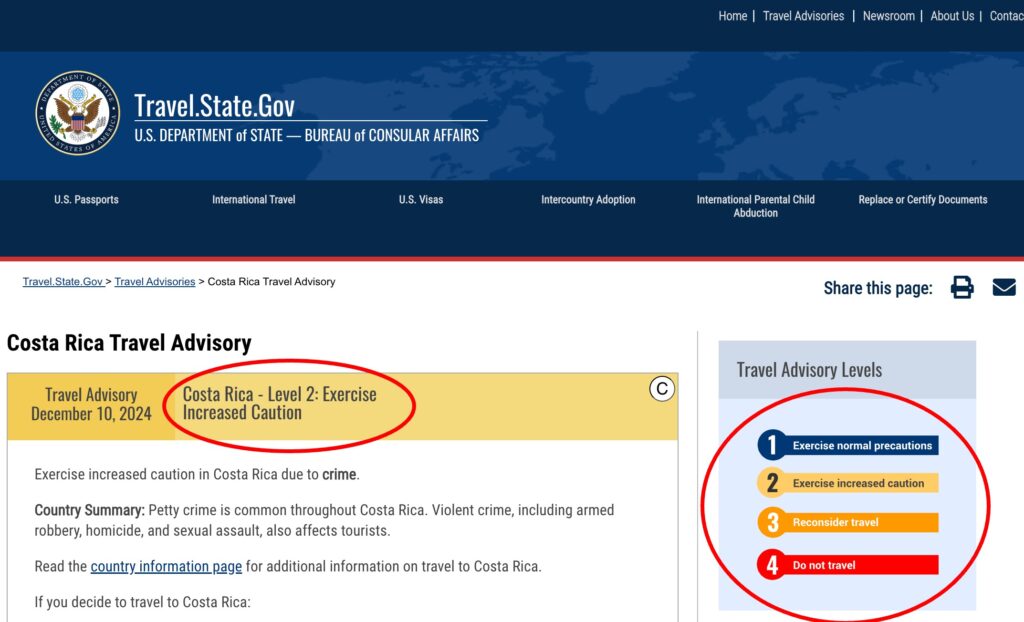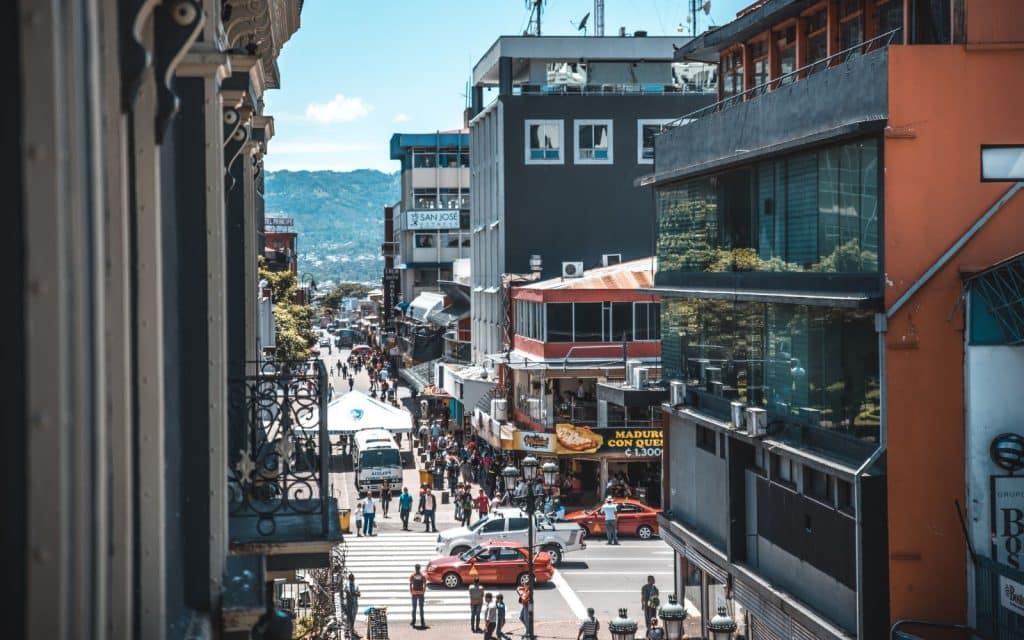U.S. Issues Updated Travel Advisory For Costa Rica Over Crime
3 min readThe U.S. State Department has reviewed its travel advisory for Costa Rica, urging travelers to exercise greater caution due to crime. The agency notes that petty crime is now common across the country. But that’s not all; violent crimes such as armed robbery, homicide, and sexual assault can also occur, with tourists occasionally being affected. To enhance safety, visitors are encouraged to stay alert, particularly in urban areas where crime is more common or during nighttime hours. Once considered the […]
The post U.S. Issues Updated Travel Advisory For Costa Rica Over Crime appeared first on Traveling Lifestyle.
The U.S. State Department has reviewed its travel advisory for Costa Rica, urging travelers to exercise greater caution due to crime.
The agency notes that petty crime is now common across the country. But that’s not all; violent crimes such as armed robbery, homicide, and sexual assault can also occur, with tourists occasionally being affected.
To enhance safety, visitors are encouraged to stay alert, particularly in urban areas where crime is more common or during nighttime hours.
Once considered the safest country in Latin America, Costa Rica is now facing scrutiny due to a sharp rise in homicides.
According to data from Costa Rica’s Judicial Investigation Agency (OIJ), the country recorded over 900 homicides in 2023, making it the deadliest year in history.
One contributing factor to this crisis is Costa Rica’s lack of a national army.
Following a civil war that ended back in the 40s, President José Figueres Ferrer made the landmark decision to abolish the military. The funds previously allocated to defense were redirected to education, healthcare, and infrastructure.
“Costa Rica, as you know, is a country that has not had an army since 1949 and has been an extremely peaceful country since then, so there is a great social impact due to the increase in the homicide rate, and last year we had 906 homicides in a population of 5.2 million inhabitants,” said Mario Zamora, director of the Ministry of Public Safety.
It’s worth noting that most killings have been linked to drug trafficking groups and have not specifically targeted tourists.
For decades, Costa Rica has been recognized as a neutral and peaceful nation, avoiding regional conflicts and earning international recognition for its commitment to democracy.
Unfortunately, this reputation is changing due to a new influx of illicit drugs from South America, which has created new trafficking routes throughout the country.
At the same time, the country is facing unprecedented migration flows, a separate challenge that has brought dangerous human trafficking groups into the mix.
To make matters worse, drug trafficking groups have begun paying for local “logistics services” with cocaine instead of cash. This practice has made the drug more accessible to local consumers and easier to export to the U.S. and Europe, according to U.S. Embassy officials.
Is the Costa Rican Government Tackling the Issue?
It is. However, Costa Rica faces significant challenges in fighting gangs and the emerging Nicaraguan and Venezuelan drug trafficking organizations.
According to Randall Zúñiga, director of the OIJ, the country only has 4.2 police officers per 100,000 people, totaling fewer than 5,000 officers nationwide—and no army to support them.
To address these challenges, authorities are working to pass new laws in the National Assembly to further strengthen penalties for various crimes, including the creation and membership of criminal gangs, as well as easier extradition of foreign criminals.
This year, the country added 900 more police officers to its force. But the number is still insufficient to tackle the country’s growing security concerns.
So, Is Costa Rica Still a Safe Place to Visit Over the Holidays?
The short answer is yes. The U.S. State Department ranks the country at Level 2: Exercise Increased Caution, meaning it is considered as safe as Spain, Italy, or the U.K.
While most crimes happen in areas with strong gang presence, the U.S. agency advises citizens to follow these recommendations for a safer trip:
- Stay away from remote or poorly lit beaches, streets, or neighborhoods.
- There’s no need to show off your money—leave expensive watches or jewelry at home.
- Do not try to resist robbery attempts.
- Prepare a safety plan in case of emergencies.
- Keep yourself informed about local news.
- Last but not least, register with the Smart Traveler Enrollment Program (STEP) to receive alerts and allow U.S. officials to locate you if necessary.





